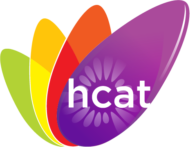British Values
The DfE have reinforced the need “to create and enforce a clear and rigorous expectation on all schools to promote the fundamental British values of democracy, the rule of law, individual liberty and mutual respect and tolerance of those with different faiths and beliefs.”
The Government set out its definition of British values in the 2011 Prevent strategy, and these values have been reiterated in 2014
At Dorchester Primary School we value and respect the diversity and backgrounds of all our pupils, families and the wider school community, these values are reinforced regularly and in the following ways.
How we promote British Values at Dorchester Primary School:
Democracy
- School councillors elected for school council
- Restorative practice
- School/class charters
- Vision and values
- Direct teaching through the curriculum
- Enterprise education
Rule of Law
- Restorative practice circles
- Behaviour policy
- Classroom/school rules
- High expectations and clear boundaries
- Bikeability (safety and road rules)
- Visits from community leaders (Police, Imam…)
- Social rules – Sporting/friendship/class
Tolerance of Culture, Faith and Others
- Accessibility policy
- Celebration of different festivals (Harvest, Eid ..)
- Visits to places of worship
- International day
- Disability equality/inclusion
- Local, national and global charity work
- Circles to reflect assembly themes
Mutual Respect
- SEAL – Jigsaw
- Sex and Relationships Education
- E-safety
- R.E. curriculum
- Sports competitions
- Restorative circles/reflection
- Visits to places of worship
- Marking policy – peer critique
- Parents consultation
- Class rules
Liberty and Personal Responsibility
- Class charters
- School and class rules
- Pupil voice – circle time, feelings
- Homework
- Sports competitions
- Commitment to extra-curricular activities
- Keeping ourselves and others safe



